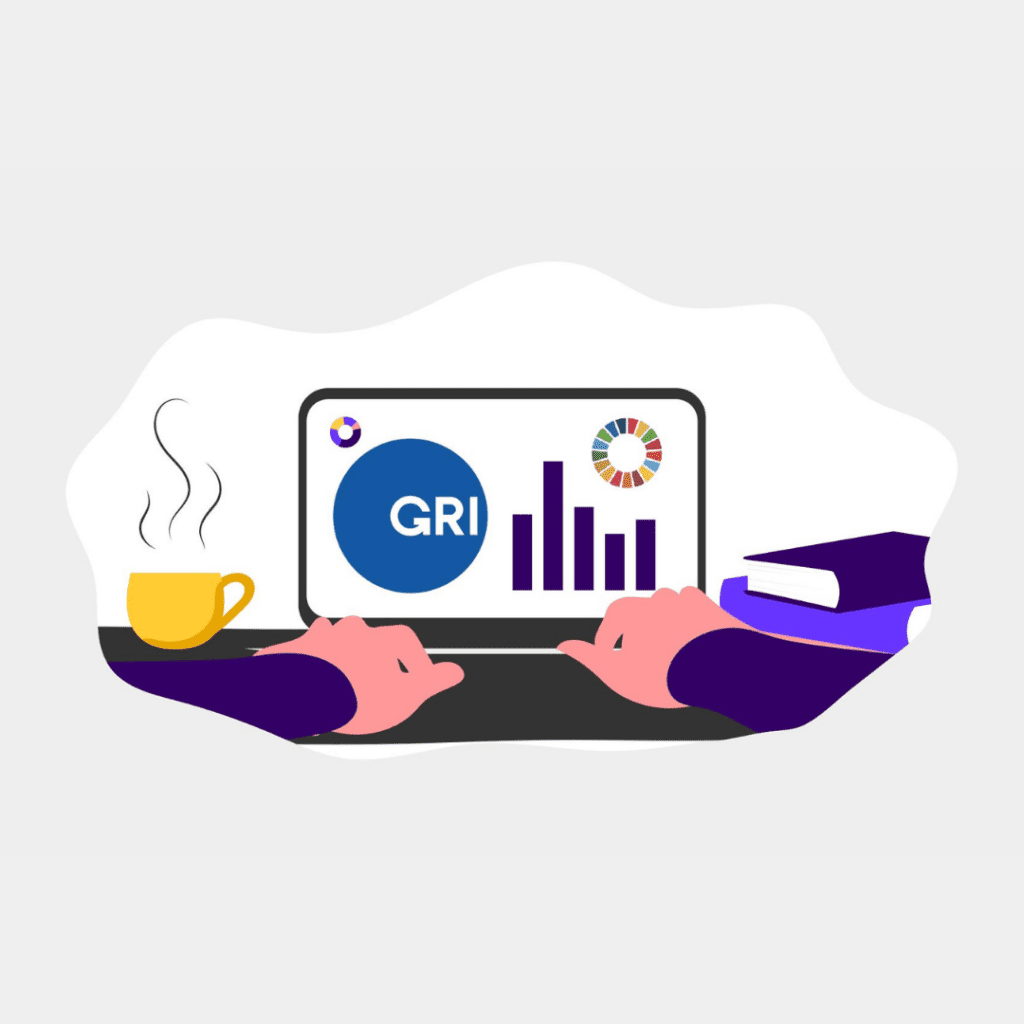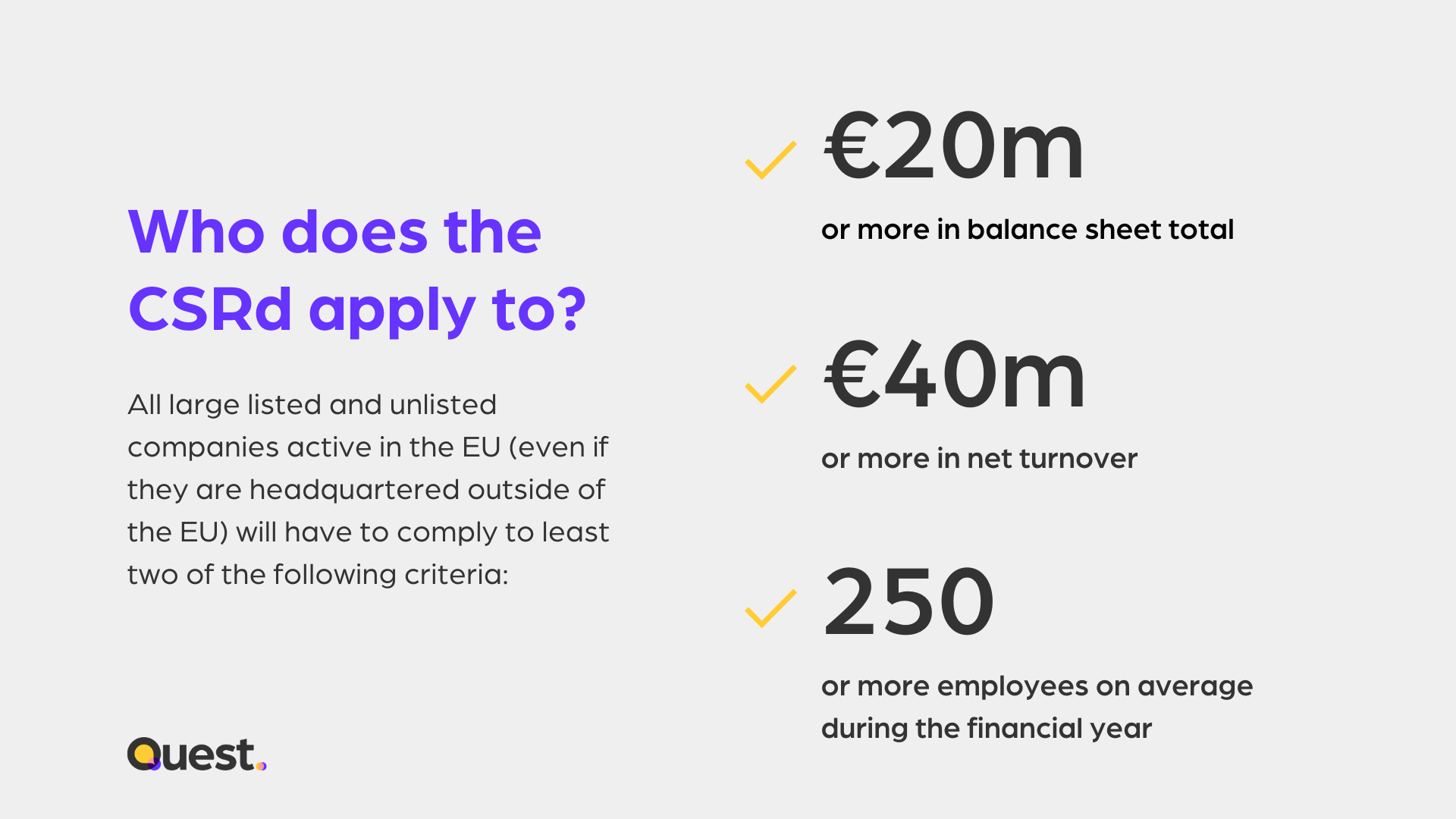Page content
What is CSRd?
The CSRd came into force on January 5, 2023, and establishes a uniform framework for the reporting of non-financial data for companies based and operating in the European Union. It replaces and builds on the existing Non-Financial Reporting Directive (NFRD) and now puts impact reporting on the same level as financial reporting. Its aim is to advance the scope and quality of sustainability reporting by increasing transparency through comparable non-financial information.
28 March 2024, 4-5 pm CET / 10-11 am EST
CSRd and reporting frameworks
Impact reporting is becoming crucial for organizations worldwide, whether it is to comply to new regulations or to gain trust by being more transparent. However, the landscape of reporting remains quite overwhelming and confusing.
Join our exclusive webinar to gain game-changing insights on the ins and outs of impact reporting, including GRI, TCFD, CSRd and much more.

How is it done?
The twelve European Sustainability Reporting Standards (ESRS) within the CSRd are here to ensure that in-scope companies provide reliable, comparable, and relevant sustainability data. They are structured around four thematic reporting areas (strategy, risk and opportunities, metrics and targets, and governance) that represent core elements of how organizations operate. The standards will delve into general requirements and disclosures, expand on ESG topics such as pollution and affected communities, for example, and notably also set out sector-specific information that will be announced later this year (stay tuned by signing up for our newsletter!). More importantly than ever, they will also delve into double materiality.
What about double materiality?
All in all, a materiality assessment refers to identifying the issues that matter most to an organization and determining how important they are. One key factor within the ESRS is adopting the principle of double materiality. It is a holistic approach that prevents one-sided reporting and instead looks at both financial and non-financial impacts. Materiality acknowledges sustainability factors that may affect the company in terms of financial risks and opportunities. It is, therefore, an outside-in perspective that analyzes the impact of the world on a company. Double materiality, on the other hand, includes an inside-out perspective in which one identifies and analyzes the impact that company activities have on people and the planet.

CSRd disclosures will be made publicly available and audited for accuracy and completeness by a third party in a process that can take a significant amount of time. Tailoring a compelling impact report is therefore becoming more important than ever. It is already clear that preparing early for reporting will unearth a range of new opportunities and add a tremendous amount of value to organizations, whether it is to attract new investors that are increasingly prioritizing sustainability to make financial decisions, to set yourself apart from rival businesses with a competitive advantage, or to increase trust and engagement both internally and externally by demonstrating your commitment. Getting started early will allow you to transition to new legislation seamlessly and position your organization ahead of the curve.

How can we help?
If reading this blog about double materiality and CSRd has made you interested in getting started on your sustainability journey, then Quest Impact Design Studio can help you!
From materiality assessment to impact strategy, from B Corp to CSRd compliance, to impact reporting, Quest is here to consult and advise you on the way. Feel free to book a call with us if you would like to have further information on this.




